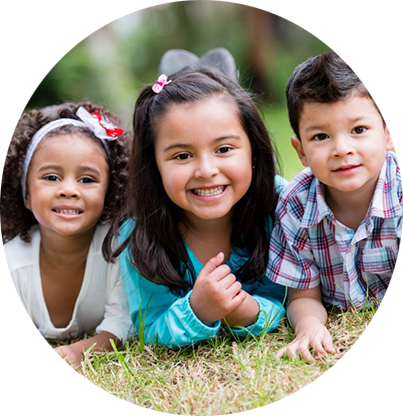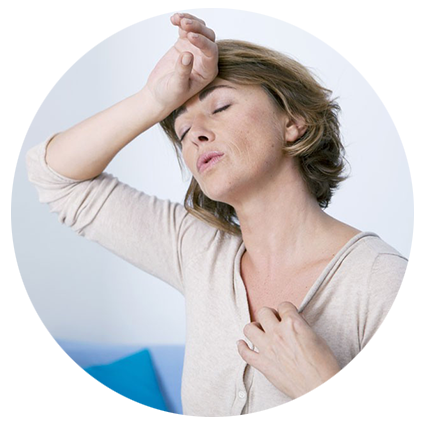Homeopathy & Women
Women readily understand and appreciate the homeopathic approach to prescribing. Usually I start consultations with women new to homeopathy by explaining that their particular medicine is arrived at by considering three aspects of their complaint; how they are mentally/emotionally, how they are physically and how they are generally affected when unwell.
A healthy lifestyle is important at any age so a homeopathic consultation will include a look at your diet, the amount of alcohol you drink, whether or not you smoke and how much exercise you take.
Here are some common conditions I see in my practice. Please call if you have an enquiry about something else:
This is a condition which seems to be produced by the balance between oestrogen and progesterone, the two female hormones secreted by the ovaries. Studies have failed to show any difference in hormone levels pre-menstrually between those who suffer PMT and those who don’t. It is one of those conditions that is difficult to describe precisely but everyone knows what it is and may have their own term for it! It is very homeopathic in that everyone exhibits different emotional disturbances and a range of physical concomitants along with nervousness and irritability.
Most women readily recognise pre-menstrual instability (pre-menstrual tension) and the physical and emotional alterations that accompany it. They often produce strong symptoms and these are what the homeopath focuses on. The way in which they change, for example wanting to be solitary when they’re normally sociable, combined with the physical symptoms of greasy skin and hair plus the craving for a salty snack are the clues needed to make a homeopathic prescription.
Women often consult me when they have tried over-the-counter anti-thrush treatments in the form of cream and pessaries but find their thrush recurs. Vaginal thrush can be very miserable and very difficult to get rid of. Diagnosis is usually made by taking a swab of the white curd-like discharge. The discharge is associated with intense itching and soreness of the vulva although sometimes the only symptoms are vulval swelling and pain on intercourse.
At other times, it may be that a test result comes back negative and a woman is left not knowing what the problem is or how to resolve it. The reason for a false negative may come about because the organism which causes thrush (Candida albicans) requires a moist, warm environment to survive. And it simply doesn’t survive the journey to the laboratory.
The growth of Candida is kept in check by bacteria present in the vagina. If antibiotic drugs destroy too many of these organisms, or if the body’s resistance to infection is lowered, the fungus may multiply excessively. Other factors that encourage its growth include the use of oral contraceptives, hormonal changes in pregnancy and a high sugar intake. That is why thrush is common in women with diabetes mellitus.
The first thing I advise sufferers to do is to eliminate sugar in their diet. Fruit may be eaten unless the case is very severe but fruit juices and squashes are forbidden.
It’s also worth checking the list of toiletries you are using. Items such as bubble baths, bleaches in sanitary products and dyes in toilet paper can produce allergic reactions.
A homeopathic remedy is prescribed with the aim of eliminating the disease and the susceptibility to it.
Some women have heavy periods from the get-go, others develop them in later decades. One of the reasons for a change to heavier blood loss may be the diagnosis of a fibroid. A fibroid is an overgrowth of muscle in the womb wall which is benign but can impinge on other pelvic organs such as the bladder and produce unwanted symptoms.
Although new techniques are available to try to remove fibroids, these are not always completely successful and at this point a hysterectomy may be offered. In the hope of avoiding an operation, I may be consulted at this point.
The aim of homeopathic treatment is to reduce blood flow and shrink the fibroid. It should be said that fibroids shrink of their own accord after the menopause and cease to present problems.
With any heavy loss of blood, it is important to take an iron supplement to replace iron loss each month. Any bleeding between periods or after the menopause should be referred back to your GP so that the appropriate gynaecological investigations can be made.

Here’s the sort of things women tell me about themselves.
“Just before my period I want to hide away form everyone and everything. Don’t ask me to leave my room! For a start, I look hideous. My skin and hair get so greasy I positively shine. And I just have to have Pringles. The cheese and onion flavoured ones are best. As soon as I reach for the Pringles I think oh, no, here we go again! My period’s quite heavy and painful and that makes me want to stay in, too. It’s awful if I’m at work. By the third day everything’s changed and I’m back to being me again.”

Over 60s
Homeopath for over 60s
There’s always a lot to talk about with someone over 60. What distinguishes this age group from younger ones is the fact that most people in this age bracket are living with at least one chronic condition.

Men
Homeopathy for Men
Men are reluctant to get help for their health problems. Even though a man’s average life expectancy is six years less than a woman’s, they often delay seeking help until their situation has become serious or can no longer be ignored.

Children
Homeopathy for Children
When most children fall ill, they tend to produce strong symptoms which make homeopathic prescribing relatively easy.

Teenagers
Homeopath for Teenagers
The transition from childhood to adulthood involves many changes and a change is always stressful to some degree.

Pregnancy
Homeopathy for Pregnancy
The gentle, non-invasive, healing approach offered by homeopathy suits many pregnant women. I am frequently consulted by women who cannot or do not want to take a chemical drug whilst pregnant.

Menopause
Homeopathy for Menopause
A transition such as the menopause is always stressful to some degree as it involves physical and emotional changes which need adapting to.
